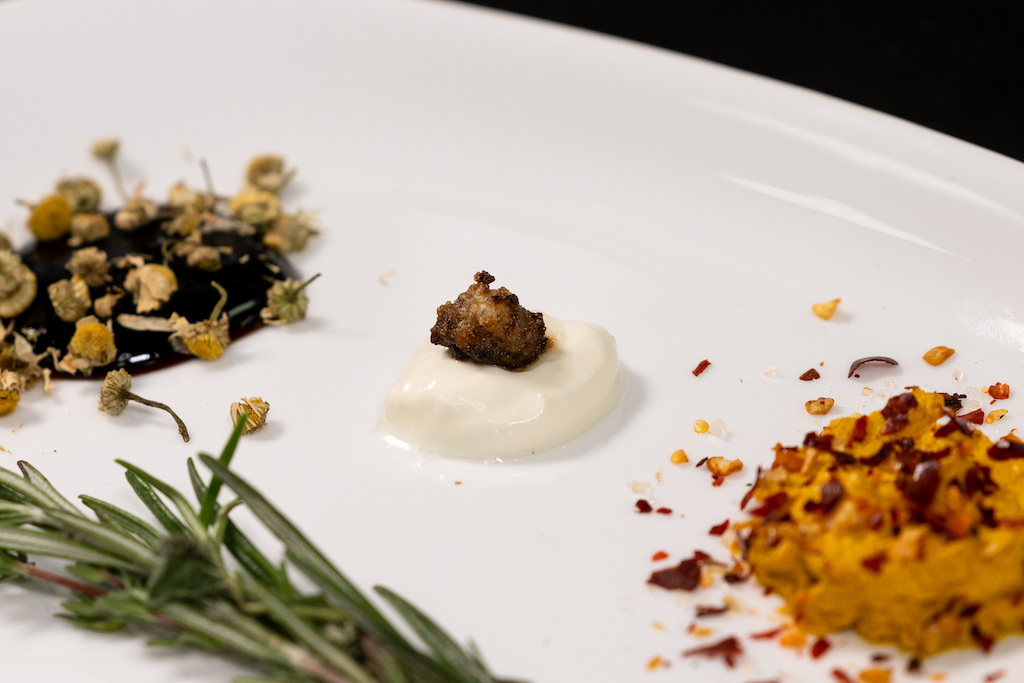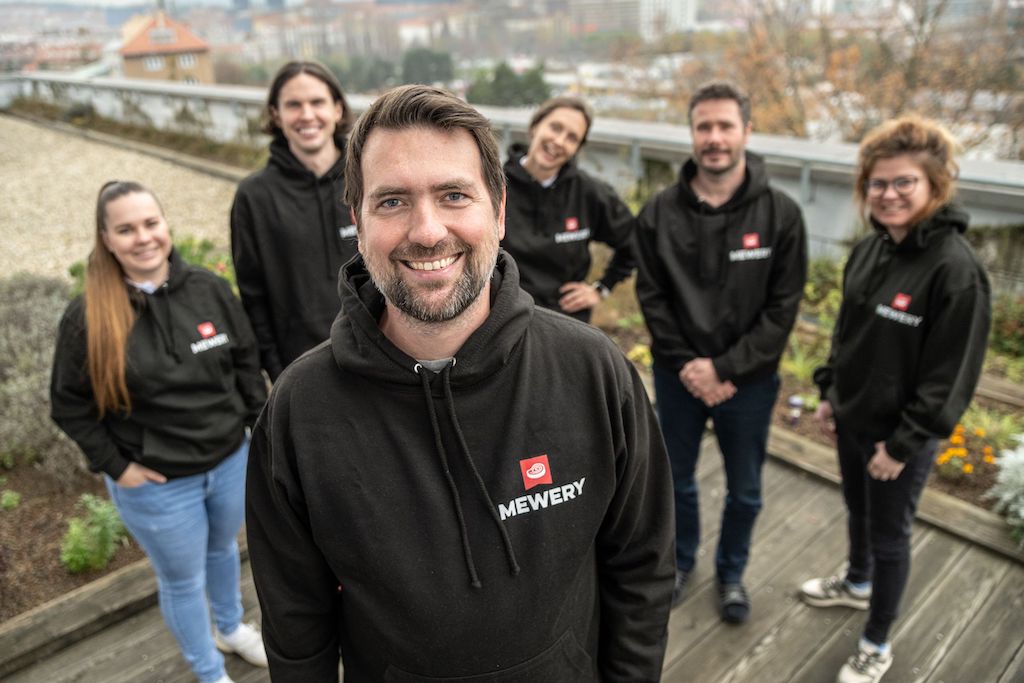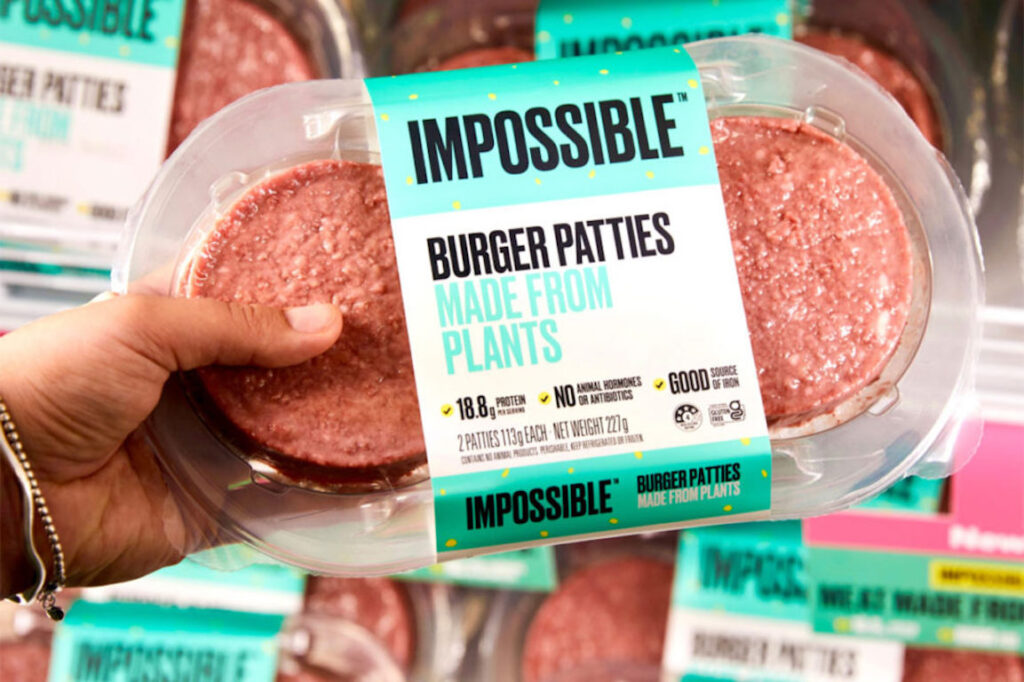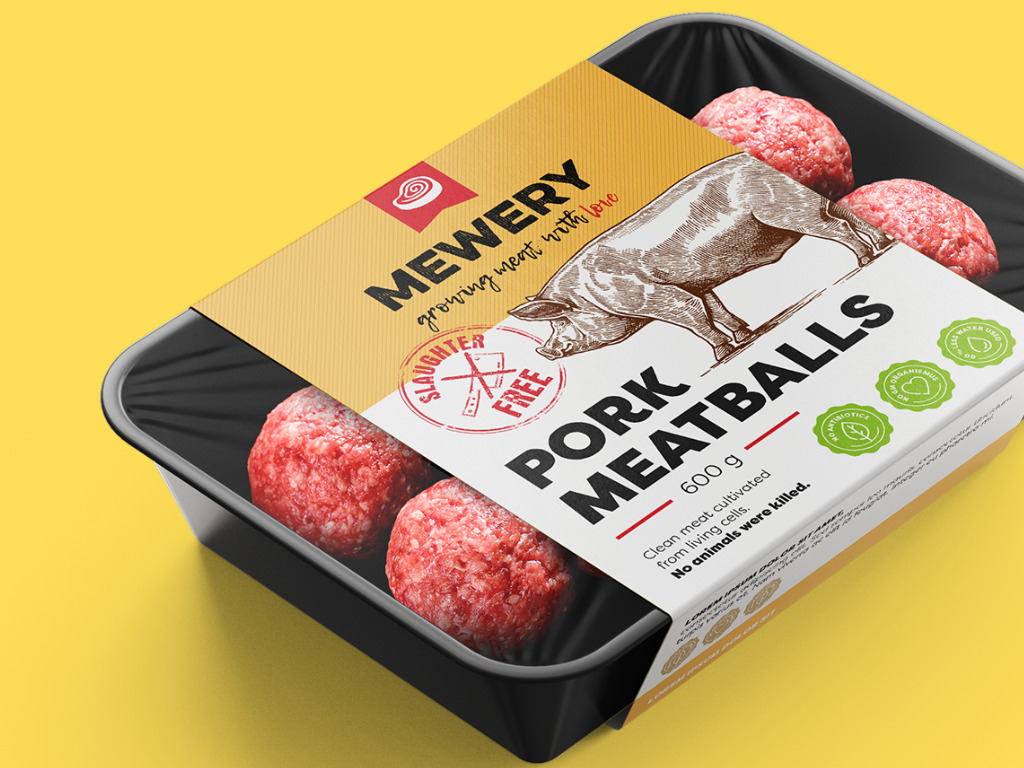3 Mins Read
Czech food tech startup Mewery has debuted what it says is the world’s first cultivated meat made to use microalgae cells.
Made from a mix of pork cells and microalgae cells, Mewery has released its first cultivated meat prototype and the first for central and Eastern Europe.
The prototype comes after the company launched in 2020; it was included in Big Idea Ventures’ New Protein Fund accelerator and landed investment funds from Credo Ventures and Purple Ventures last year.

Microalgae cells
Using novel tech, the meat is 100 percent cell-based, something Mewery says is an unusual feat in the industry as many other cultivated meat producers rely on inputs including soy and pea mixed with 30 to 50 percent cultivated animal cells.
Mewery’s cultivated meat is made from 75 percent pork cells and 25 percent microalgae cells – growing to a marketable cut in just ten weeks to produce.

Mewery says microalgae plays a key role in its cultivated meat development by saving money and replacing controversial ingredients including fetal bovine serum (FBS). Mewery says it also offers a nutritional advantage, enriching the products with additional vitamins, minerals, fatty acids, fiber, and antioxidants.
Microalgae is being hailed as a sustainable food solution with companies exploring its potential in mimicking dairy, seafood, and palm oil, among other applications. Mewery says its use of microalgae in cultivated meat “has great potential to disrupt the whole field.” The company has submitted a patent for its process of production, including the development of its own cultivating medium.
“We already have several variants of media that work for us without animal products and which we continue to work with. It is like a cookbook,” Roman Lauš, Mewery’s founder, said in a statement.
“You have to add somewhere, take away somewhere else, and you will only find out if it was successful when you bake the cake. We have typed specific parameters that we track and compare their dependencies. It’s bioinformatics in practice,” he says.
Market timeline
Mewery is aiming to bring its cultivated meat to market within two years. That timeline could line up with regulatory approvals. Cultivated meat is currently only approved for sale in Singapore, but a recent FDA GRAS status in the U.S. for cultivated meat producer Upside Foods means U.S. approval is likely within the next year.

Europe, however, has been notoriously more stringent on approval processes for novel food ingredients. The E.U. and U.K. have still not approved heme, a key ingredient in Impossible Foods’ burgers that give them their meaty taste and texture.
But for Mewery, the time until approval is valuable.
“Now we are working intensively on establishing our own biobank, which is basically a repository of cells from which we can cultivate more meat,” Lauš says. “In this way, we want to ensure a more or less unlimited source of pig cells, which will move us closer to large-scale production. The increase in the volume of cultivation in large-capacity cultivators is directly related to this and should happen already this year.”




